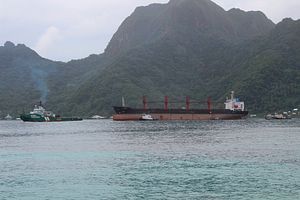Despite the high profile of negotiations between North Korea and the United States, the United Nations (UN) sanctions regime on North Korea remains a core component of international efforts to curtail the country’s nuclear and missile programs. These sanctions restrict – among other things – imports and exports of select commodities, as well as the means by which North Korea can access the global economy.
While not of the same immediate relevancy as imports of advanced missile technologies, UN restrictions on the export of bulk commodities (coal, iron, etc.) and the import of petroleum products are important. These restrictions aim, respectively, to limit the funds and fuel that North Korea devotes to its nuclear and missile programs. Yet North Korea has continuously evaded restrictions on these imports and exports. Although that’s partially due to inconsistent implementation and enforcement of UN resolutions, North Korea has also developed a suite of tactics designed to disguise maritime activity that might fall afoul of the UN sanctions regime.
A subset of North Korea’s sanctions evasion tactics aims to hide imports or exports violating the sanctions regime. Both ship-to-ship transfers and the disabling of Automatic Identification System (AIS) transponders broadcasting a vessel’s location and identity are key examples of this sort of evasion tactic.
The first of these two tactics, ship-to-ship transfers, allows North Korea to import or export restricted commodities without needing to send its vessels into foreign ports and without requiring other vessels to enter North Korean waters. The benefits of this are pretty straightforward: No port visit means no customs declaration, no customs declaration makes it a lot harder to keep track of what North Korea is importing or exporting. For this reason, ship-to-ship transfers have long been a way for North Korea to import refined petroleum products in excess of the limits imposed by the UN sanctions regime.
The second of these two tactics, disabling AIS transponders, allows vessels to operate with minimal oversight. This is not necessarily a new tactic. In 2013, the North Korean vessel Chong Chon Gang – according to the March 2014 report by the UN Panel of Experts – disabled its AIS transponders while picking up a cargo of armaments and related materiel in Cuba in violation of UN Security Council resolution 1874 (2009). That resolution prohibited the transfer of armaments, excepting small arms and light weapons, and related materiel to North Korea. In fulfillment of its UN obligations, Panama seized the Chong Chon Gang during the vessel’s return to North Korea.

































